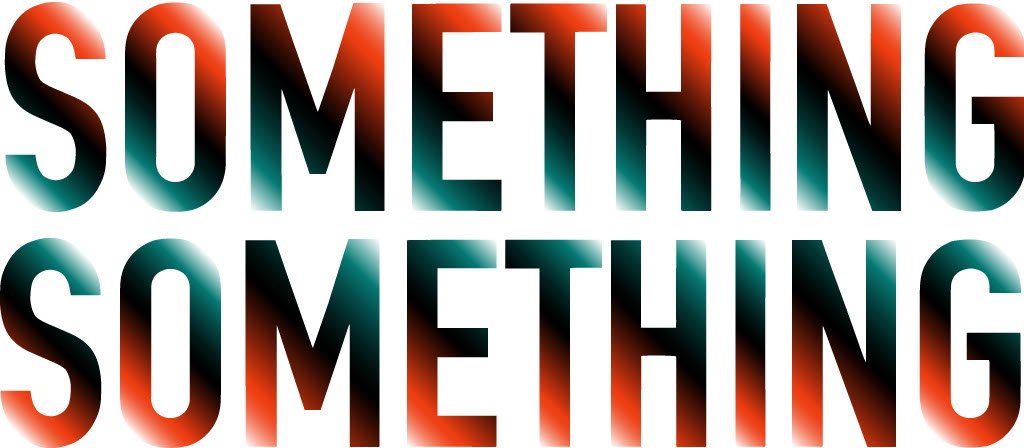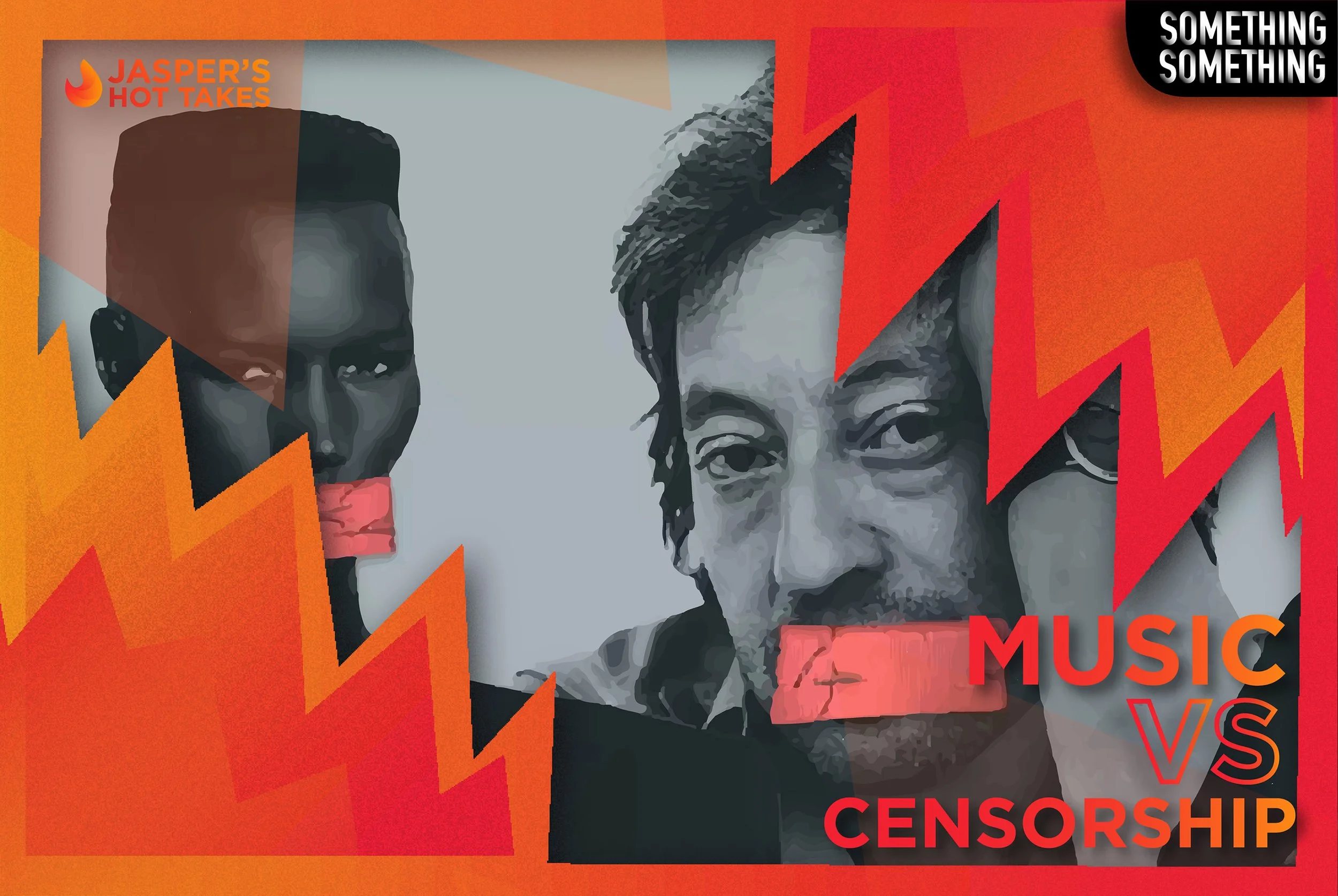ARTICLE: Censorship in the 20th Century - Jaspers Hot Takes
Is music censorship an ethical solution to social issues?
Censorship, broadly, has been a part of humanity for many centuries. The old saying ‘History is written by the winners’ is referring to a form of censorship. With the advent of electricity and the industrial revolution, the information age brought a new depth to the power of censorship and now, more than ever, its role in society is tested and debated on the world stage.
Music has been an integral part of individual cultures and societies for all of humanity, thus its role in communication has become vast during the information age. The importance of censorship is still very real and the debate on when to use it ethically has been ongoing and will be forever. One thing is for certain, there will never be a world without censorship, like faith, force or compassion. The question is when, where and why do we use it?
History is rife with examples of censorship for the common good but the same can be found on the opposite side of ethics. Famously, Hitler used propaganda and censorship to mold the collective psyche of a people, a tactic which became a strong motif during the 20th century (information age). He oppressed knowledge by censoring the media, rallying citizens to burn books and put them on a strict propaganda diet of military pride. He rewrote his history of Germany through the culture of the people and as we know, one of the biggest facets of peoples culture is their Music.
Most notably, Hitler's youth program, Hitlerjugend, distributed song books like the ‘Uns geht die Sonne nicht unter’, composed by Gottfried Wolters. This featured lyrics that painted a heroic past for Germany, censoring the betrayal and blood of the great war. Songs like ‘Es rittern die morschen Knochen’ preach “The rotten bones are trembling, Of the World before the great War. We have smashed this terror, For us a great victory.” (Peterson 27) Clearly, this is a misleading representation of history, be it interpretational, as Germany didn’t finish paying for the Great War until October 3rd 2010. (Go find your victory!)
Here we have an example of censorship in the hands of dissolution, however, we use the same morals today to rightfully censor Nazi and White Supremist music. These movements rely heavily on music because, just like the Third Reich, they understand its underlying significance to people and its effectiveness at getting a message across. Worryingly this means “It's no longer a question of music for national socialists or racists, the music itself has become the ideology”.(Loow 1.) With genres like ‘Oi’ giving white skinheads in 1970s England a voice, and ‘Separatist Rock’ representing a white, right wing Sweden, something needed to be done to prevent the spread of racist messages into mainstream media, repeating history a mere generation later.
Many laws and court cases were to follow to try and suppress the distribution of this music, however, in a lot of countries, acts had the right to free speech or artistic interpretation to fall back on, leaving governments feeling somewhat powerless. While this didn't always work, on the whole, it was a deep safety net for extremism to fester. When the Finnish group Mistreat was taken to court for their album ‘White Solidarity’, “Only one track...was found guilty of incitement to racial hatred. To date, [1998] this is the only conviction against White Noise [music].” (Loow 3.) This shows just how important it is to have stable censorship laws in the modern era.
The perspective that this gives us on the gravity of censoring media makes other examples seem arbitrary. In the US in 1985, while Europe struggles with neo-nazi propaganda and extremism in music, Dee Snider of Twisted Sister is summoned to the senate by the PMRC (Parents Music Resource Centre) in defense of his ‘Satanic’ band and the right to distribute without censorship. This was extremely publicly contentious because the American psyche as a whole is against censorship and sees it as oppressive. Nonetheless, Snider jumped at this opportunity to participate in his democracy and gave a speech worthy of the senate's history books. Strolling down the room in his double denim and last night's eyeliner, he remembers that “they were, like everybody else, grossly underestimating me...They did not know that I could construct a sentence and speak English, fluently”. Dee Snider argued how “unfair the whole concept of lyrical interpretation and judgment can be, and how many times this can amount to little more than character assasination.” (Snider 2.35) This ‘character assasination’ was a serious issue for individual livelihoods in the music business as the “accusations [were] damaging to reputation and slanderous.” (Snider 6.49) Artists as wholesome as John Denver were falling into this trap, having his song ‘Rocky Mountain High’ banned from many radio stations as a drug related song, even though his use of the term ‘High’ was extremely subjective.
Although Snider was unsuccessful in preventing the ‘Parental advisory’ sticker, this move by the PMRC famously backfired and caused the sale of explicit material to drastically increase. The irony here of course is that the opposite to what the PMRC wanted was what happened, even though they won the senate's vote. This is a firm lesson in abusing the power of censorship in a free society and shows the consequence of profiling groups based on culture alone.
A lot of the fear surrounding these groups were due to corse themes like sex, violence and drug use. While Twisted Sister can justifiably deny that they promote these themes, there were acts on the periphery of mainstream that did. Notably, around the same time as these hearings, Hip Hop was gaining a massive influence on the collective culture and the sub-genre ‘Gansta Rap’ was the poster child for violence and hatred toward authority. With the rise in street crime and gang issues in the US during the 80s, it wasn’t a far stretch for some to blame the ‘hardcore’ music kids listened to. However, to quote the late John Denver, “We can address the reality of a problem and not just deal with the symptoms''. (Denver 7.14) Coming from a world of poverty, oppression and violence at the hands of authority, the music black African-American groups of the time created (Like NWA, 2PAC and Run DMC) was a microcosm for their society and a way for young teenagers to relate to the struggle. The censorship of the sale and distribution of Hip Hop due to its message, is just another oppression they face to this day.
When Joanna Zylinska talked about the crime waves in Britain in the early 2000s, she refers to “...its penetration into ‘mainstream society’ through the rhythms of rap and hip-hop....” (Zylinska) Tipper Gore, the PMRC and a general population were worried that the crude aesthetics and lyrics from Gangsta-Rap would find its way from the peripheral mainstream and into pop culture since “Popular music...is usually categorized by its difference from serious music.” (Adorno 301.) In short, if Hip Hop became Pop, the ship would have well sailed on censoring it.
This inevitably happened, but like most aspects of pop music, it was heavily watered down along the way. In regards to the possibility of Pop/Hip Hop inciting violence “It is safe to assume that music listened to with a general inattention...is not followed as a sequence of experiences
that have a clear cut meaning of their own.” (Adorno 311) There is no correlation between passively listening to Hip Hop and violence, however, a music that is not in the realm of pop culture like ‘Seperitist Rock’, would only be listened to with a specific set of ideals and morals in mind.
Having learnt of Nazi extremist music and how censorship plays a vital role in the fabric of our society, the accusations of insiting violence that Dee Snider and many other acts endured seem arbritrary and demeaning to the value of censorship. Putting a parental advisory sticker on an album that depicts an American culture their own society perpetuates is very much an ambulance at the bottom of a cliff. However, banning the sale of racist music that preaches ethnic cleansing is very much a censorship the collective people need.
The ethics of censorship in the case of social issues is not a question of whether or not we want it, but a question of how much? “Teenagers are hardwired, at various times, to play society’s dominant values back at adults.” (Savage) If our values are to suppress art when it is most confronting, this is the que the next generations will take. If we are willing to single a group out based on their culture, teenagers will play this value back, creating a feedback loop and making the divides in society bigger instead of addressing the problem that created them.
Adorno, Theodore W. ‘On Popular Music’ https://stream.massey.ac.nz/pluginfile.php/4266043/mod_resource/content/0/Adorno%20-%20On%20Pop ular%20Music.pdf. Accessed 23 Oct 2021
Dalideus. Dee Snider Interview 1984 In US Congress. 2021, https://www.youtube.com/watch?v=5QqplPfYTE8. Accessed 23 Oct 2021.
Denver, John. John Denver At PMRC Hearings. 2010, https://www.youtube.com/watch?v=VgSjjD6rRu4. Accessed 23 Oct 2021.
Peterson, Patrick-Scott. "Folk Songs, Youth, And Propaganda: Music Of The Third Reich". Core.Ac.Uk, 2014, https://core.ac.uk/download/pdf/62427129.pdf. Accessed 25 Oct 2021.
Savage, Jon. "Demonising Those Teenage Dirtbags: The Current Moral Outcry Over Drill Music Is So Last Century. Adults Have Been Scared About What The Kids Are Singing For Decades - Jon Savage, 2018". SAGE Journals, 2021, https://journals.sagepub.com/doi/full/10.1177/0306422018784511. Accessed 24 Oct 2021.
Snider, Dee. Dee Snider's PMRC Senate Hearing Speech (Full). 2012, https://www.youtube.com/watch?v=S0Vyr1TylTE. Accessed 23 Oct 2021.
"White Noise". Journals.Sagepub.Com, 2021, https://journals.sagepub.com/doi/pdf/10.1080/03064229808536482. Accessed 23 Oct 2021.
Zylinska, Joanna. "Guns N’ Rappers: Moral Panics And The Ethics Of Cultural Studies – Joanna Zylinska". Culture Machine, 2021, https://culturemachine.net/deconstruction-is-in-cultural-studies/guns-n-rappers/. Accessed 23 Oct 2021.
Written by Jasper West

